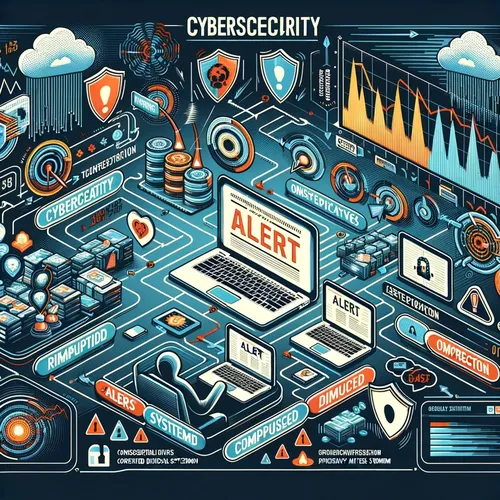China's Cyber Spies Caught Red-Handed: Treasury Dept Hack Sparks Outrage and Calls for Action
- Author
- Quiet. Please
- Published
- Sat 18 Jan 2025
- Episode Link
- https://www.spreaker.com/episode/china-s-cyber-spies-caught-red-handed-treasury-dept-hack-sparks-outrage-and-calls-for-action--63743368
This is your Red Alert: China's Daily Cyber Moves podcast.
Hey there, I'm Ting, and I'm here to give you the lowdown on China's latest cyber moves against the US. Buckle up, because it's been a wild few days.
Let's start with the big one: the US Treasury Department hack. Just a few days ago, it was revealed that Chinese hackers, linked to the Ministry of State Security, breached the Treasury's systems and stole over 3,000 files. That's right, folks, 3,000 files, including policy and travel documents, organizational charts, and even 'Law Enforcement Sensitive' data. The attackers used a compromised Remote Support SaaS API key to infiltrate BeyondTrust's systems, which then allowed them to access the Treasury's network. This is some serious spy stuff.
But that's not all. The FBI and CISA have been warning about China's escalating cyber threats to US critical infrastructure for months. In fact, FBI Director Christopher Wray called it the "defining threat to our generation." China's hackers are positioning themselves on American infrastructure, preparing to wreak havoc and cause real-world harm to American citizens and communities.
And it's not just the Treasury Department that's been targeted. The US government has been investigating unauthorized access to commercial telecommunications infrastructure by actors affiliated with the People's Republic of China. The investigation is ongoing, but it's clear that China is trying to disrupt US military supply lines and blunt an effective response to potential conflict, especially over Taiwan.
Speaking of Taiwan, the island nation has been bearing the brunt of China's hybrid tactics, with government networks seeing nearly 2.4 million cyberattacks daily in 2024. That's a staggering number, and it's clear that China is trying to test the waters, so to speak, and see how the US responds.
So, what can we do to defend ourselves? Well, for starters, the US government has imposed sanctions on Chinese actors linked to the Salt Typhoon group, which is responsible for the Treasury hack. The Cybersecurity and Infrastructure Security Agency (CISA) is also working with industry partners to strengthen cyber defenses across the commercial communications sector.
But it's not just about the government. We all need to be vigilant and take steps to protect ourselves from these threats. That means keeping our software up to date, using strong passwords, and being cautious when clicking on links or downloading attachments.
So, there you have it. China's cyber threats are real, and they're escalating. It's time to take action and defend our critical infrastructure. Stay safe, and stay tuned for more updates on this developing story.
For more http://www.quietplease.ai
Get the best deals https://amzn.to/3ODvOta
